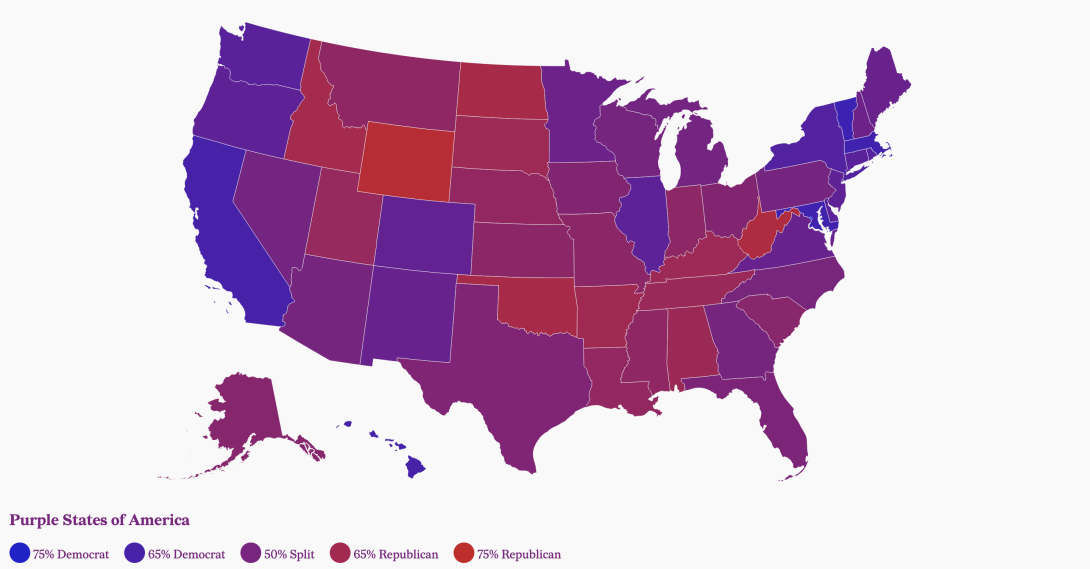Key takeaways from the 2024 elections in the South

The victory of N.C. Attorney General Josh Stein, pictured here in 2021, in the state's gubernatorial race was one of several Democratic victories in 2024. (Photo: NCDOT Communications)
The story of the South in the 2024 elections was, in many ways, similar to the rest of the country: Democratic voter turnout was down, and states shifted to the right in support of President-elect Donald Trump.
But a deeper look at this year’s election results in the South reveals a region that is far from a monolithic conservative stronghold. Southern voters showed that the South is still contested terrain in a number of ways — from taking progressive positions on key ballot initiatives, to electing a slate of Democratic candidates to state-wide offices in North Carolina.
While a few races are still being decided as states wrap up their final canvass and certification processes, here are a few key trends and takeaways from the 2024 elections in the South:
Voter turnout was down
While some post-election analysis has pointed to the record numbers of voters in 2024, the share of eligible voters who cast ballots this year was lower than in 2020. Vote totals are still being finalized, but data from the University of Florida Election Lab shows that 63.7% of eligible voters nationally participated in 2024, a 2.7-point decline from the 66.4% who voted in 2020.
Most of the South followed the trend. Ten of the 13 Southern states saw a decline in eligible voter turnout between 2020 and 2024, with Florida’s four-point decline leading the region. 2024 turnout in two states – North Carolina and Virginia – was about the same as 2020, and Georgia was the lone Southern state to see turnout among eligible voters increase, a 1.2-point gain from 67.1% in 2020 to 68.3% in 2024.
The South isn’t as red as it looks
In our winner-take-all system, most states allocate all of their Electoral College votes to the winning presidential candidate, no matter how close the margin was. So even though 48.5% of Georgia voters, for example, picked Vice President Kamala Harris for president in 2024, 100% of the state’s 16 Electoral College votes went to Trump, leading to Georgia being dubbed a “red” state.
When looking at the popular vote, however, it’s clear that most states are various shades of purple, as this 2024 results map from the Purple States of America website shows:

In 2024, Southern states were various shades of purple, although with a redder hue than 2020. Overall, 56.2% of voters in 13 Southern states chose President-elect Donald Trump, while 42.6% chose Harris, or more than two out of five voters. But a rightward shift was also clear: Largely due to stalled Democratic voter turnout, Trump almost doubled his advantage in the South over the last four years, with his share of the vote increasing from a 7.6-point lead over Biden in 2020 to a 13.6-point margin over Harris in 2024.
Republicans still dominate Southern state legislatures
After years of partisan competitiveness well into the 2000s, Southern legislatures have been increasingly dominated by Republicans over the last decade — with control solidified by extreme gerrymandering of state legislative districts. Heading into the 2024 elections, only two of the South’s 26 legislative chambers had Democratic majorities: the Virginia House and Senate.
With a handful of legislative races still being decided, Republicans are on track to control 68% of state house seats in the South, according to the National Conference of State Legislatures — about the same share as the GOP enjoyed coming into the election. Republicans will continue to control state houses in all Southern states except Virginia.
There were small shifts, however, among the most notable being in North Carolina, where Democrats broke the GOP’s supermajority by gaining one seat in the N.C. House. In 2024, Georgia Democrats also continued their incremental gains over the last decade, picking up two state house seats and leaving Republicans with a 100-80 majority. In West Virginia, Republicans grew their margins, gaining two more house seats to emerge with a 91-9 majority.
In state senates, Republicans are slated to gain three seats and control 70.8% percent of seats in the South, with Virginia again being the only senate chamber in the South with a Democratic majority.
North Carolina’s unique shade of purple
North Carolina was the epitome of a purple state in 2024, with Trump winning by 3.2 percentage points at the top of the ticket, but Democrats winning key down-ballot races.
Democratic N.C. Attorney General Josh Stein trounced scandal-plagued Republican Lieutenant Governor Mark Robinson by 14.8 points. As political scientist Christopher Cooper noted, most of Stein’s votes came from Republicans splitting their ticket for Trump and Stein — something increasingly rare in contemporary politics.
Democrats also increased their seats on the Council of State, winning races for Lt. Governor, N.C. Attorney General, N.C. Secretary of State, and N.C. Superintendent of Public Instruction. And while Republicans were projected to win as many as 11 of North Carolina’s 14 Congressional seats — thanks in large part to GOP-friendly gerrymandered districts — Republicans will end up winning 10* after Democratic Rep. Don Davis won reelection in North Carolina’s 1st Congressional District.
Also, in a remarkable come-from-behind win, Democratic justice and lifelong voting rights advocate Allison Riggs is on track to win her race for the N.C. Supreme Court, going from a deficit on election night to a 623-vote victory after absentee and provisional ballots were counted. A recount is expected, and Republicans are contesting more than 60,000 ballots across the state.
School privatization defeated in Kentucky
While many state legislatures across the South and country have adopted school privatization schemes that allow public money to be used for private schools, when the issue has been put up for the vote in ballot initiatives, privatization measures have often been defeated. In 2024, Kentucky voters rejected Amendment 2, which would have changed the state constitution to allow public funds to be used for private schools. A resounding 64.8% of voters opposed the measure — and a majority in every county in the state — which the progressive Kentucky Center for Economic Policy estimated could drain as much as $1.2 billion from public schools, enough to employ 9,869 teachers and school employees.
FL abortion and marijuana amendments get majority support, but don’t pass
Two high-profile ballot measures in Florida received majority support from state voters, but failed to reach the 60% level needed to pass. Amendment Three, which would have legalized recreational marijuana in the state, received support from 55.9% of voters, and Amendment Four, which aimed to enshrine abortion rights in the state constitution, garnered 57.2% of the vote, despite Republican Gov. Ron DeSantis and GOP leaders using a daunting array of political strategies.
“Citizen only” voting amendments win with large margins
Constitutional amendments mandating that only citizens be allowed to vote passed handily in Kentucky, North Carolina, and South Carolina, as well as five other states. Given that non-citizens are already barred from voting in all of the states where these amendments passed, the measures were largely viewed as a way to boost right-wing anti-immigrant messaging by raising unfounded fears of noncitizens casting ballots in the 2024 elections.
However, there is potentially a larger agenda at play: President Trump and MAGA conservatives have vowed to challenge birthright citizenship, the U.S. Constitution's guarantee of citizenship status to those born in the United States. The “citizen only” voting amendment passed in North Carolina, for example, changed the state’s constitution from reading that “Every person born in the United States and every person who has been naturalized, 18 years of age, and possessing the qualifications set out in this Article” shall have the right to vote, to stating that voting rights are conferred on “Only a citizen of the United States who is 18 years of age and otherwise possessing the qualifications for voting.”
New Orleans passes “Workers’ Bill of Rights”
Voters in New Orleans supported a “Workers’ Bill of Rights” amendment to the city charter that affirms the right to fair wages, paid leave and healthcare, and the right to organize a workplace union. The language will be added to a municipal bill of rights already in the city’s charter. Organizers with Step Up Louisiana and others who championed the measure say it provides an aspirational framework for promoting workers’ rights in the city, but it won’t lead to any specific policy changes: Local governments in Louisiana are prevented from passing such policies under state preemption laws.
* Updated 11/27 9pm to reflect Republicans won 10 Congressional seats.
Tags
Chris Kromm
Chris Kromm is executive director of the Institute for Southern Studies and publisher of the Institute's online magazine, Facing South.
